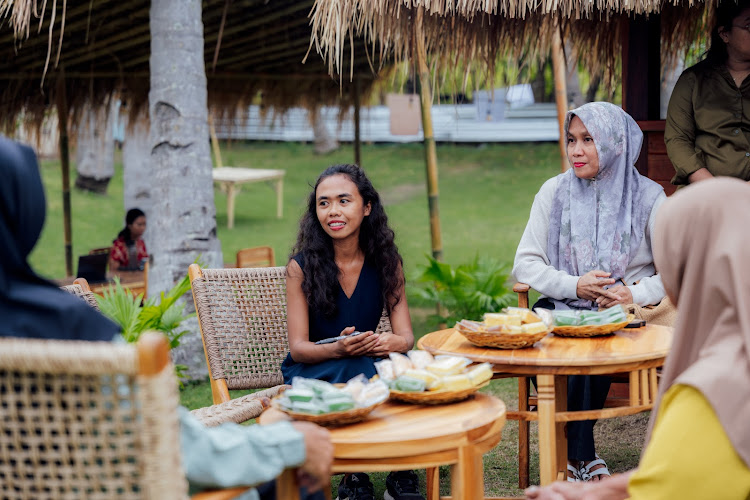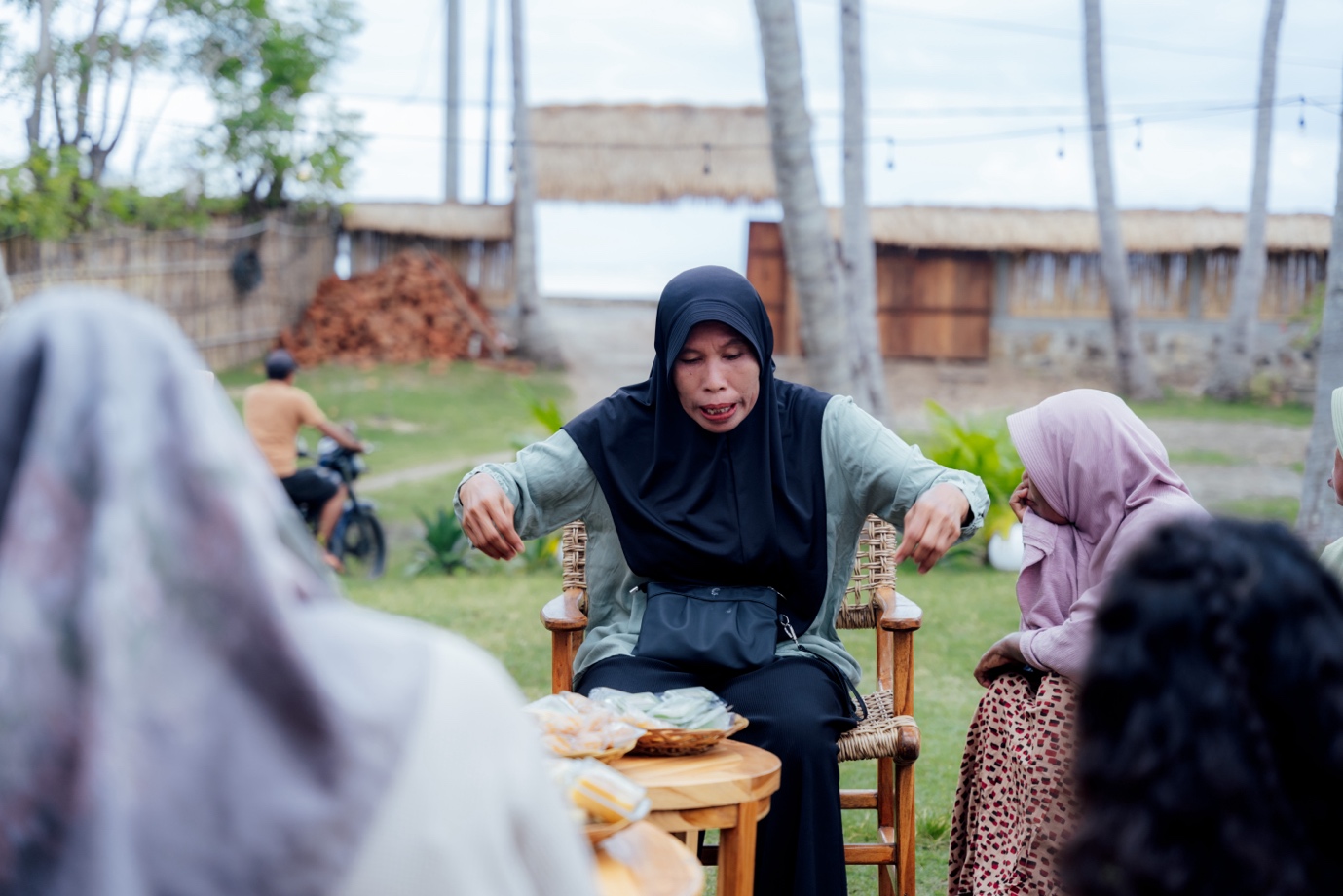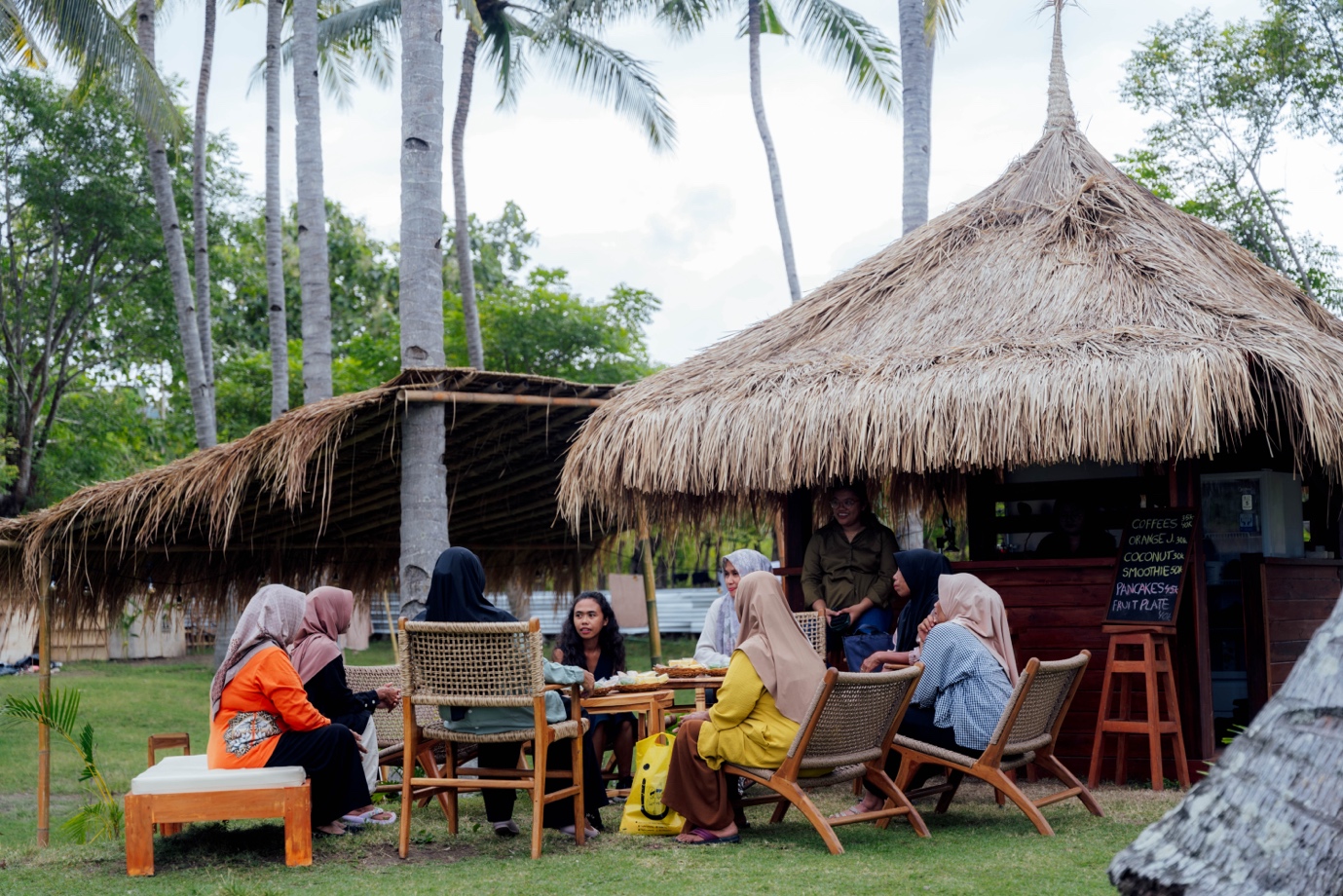Tenun Talk Brings Kertasari Weavers Together to Address the Future of Traditional Weaving
Local artisans gathered at Living on Air on May 9th to discuss challenges, fading traditions, and a proposed creative workshop to revive weaving in the village.

On Friday, May 9th, 2025, Living on Air in Kertasari hosted the Tenun Talk, a community discussion that brought together local weavers and residents to examine the current state of traditional weaving in the region. The gathering highlighted cultural concerns, economic challenges, and potential opportunities to strengthen and preserve the weaving tradition, known locally as tenun.
One of the central issues raised was the declining transmission of weaving skills to younger generations. Many weavers shared that their children lack the patience and focus required to learn the craft. Others expressed concern over the risk of damaging weaving tools, which are costly and difficult to replace. As a result, the knowledge that once passed naturally from one generation to the next is now at risk of fading.
Participants also noted that weaving is no longer a primary source of income for most women in Kertasari. Instead, it serves as a hobby or a meaningful pastime, especially as seaweed farming—another key livelihood in the area—has been temporarily suspended.
The discussion further revealed that Kertasari has not developed its own original weaving patterns. Nearly all motifs currently woven in the village come from Lombok or Sulawesi. Only one weaver, Ibu Rahmawati, is known to create patterns locally, although even her designs are adaptations rather than fully indigenous creations. Current patterns being produced in the village include Bitter Melon Flower, Starfruit Flower, Honey Bee, Lobang, Cantik, and Bombing Gabus.
Marketing challenges remain one of the largest obstacles for Kertasari’s weavers. Without a dedicated marketplace or product development strategy, artisans sell only raw woven fabric. Very few initiatives exist to transform textiles into value-added items such as bags, wallets, clothing, or home décor. Three active weaving groups—Cahaya Bugis, Sahira Takur, and Mawar Merah—continue to operate, but all face similar limitations in reaching broader markets.
A proposed solution raised during the Tenun Talk was the creation of a community creative workshop. This space would allow weavers to collaborate, innovate, and design ready-to-sell products tailored for visitors. Advocates believe that such a workshop could help generate income, attract younger generations to the craft, and ensure the longevity of weaving in Kertasari.
The Tenun Talk concluded with a shared commitment to celebrate, preserve, and modernize the village’s weaving heritage. Participants emphasized that without active efforts to train younger artisans and diversify products, the tradition risks disappearing. The proposed workshop represents a promising step toward revitalizing tenun and securing its cultural and economic value for the future.




